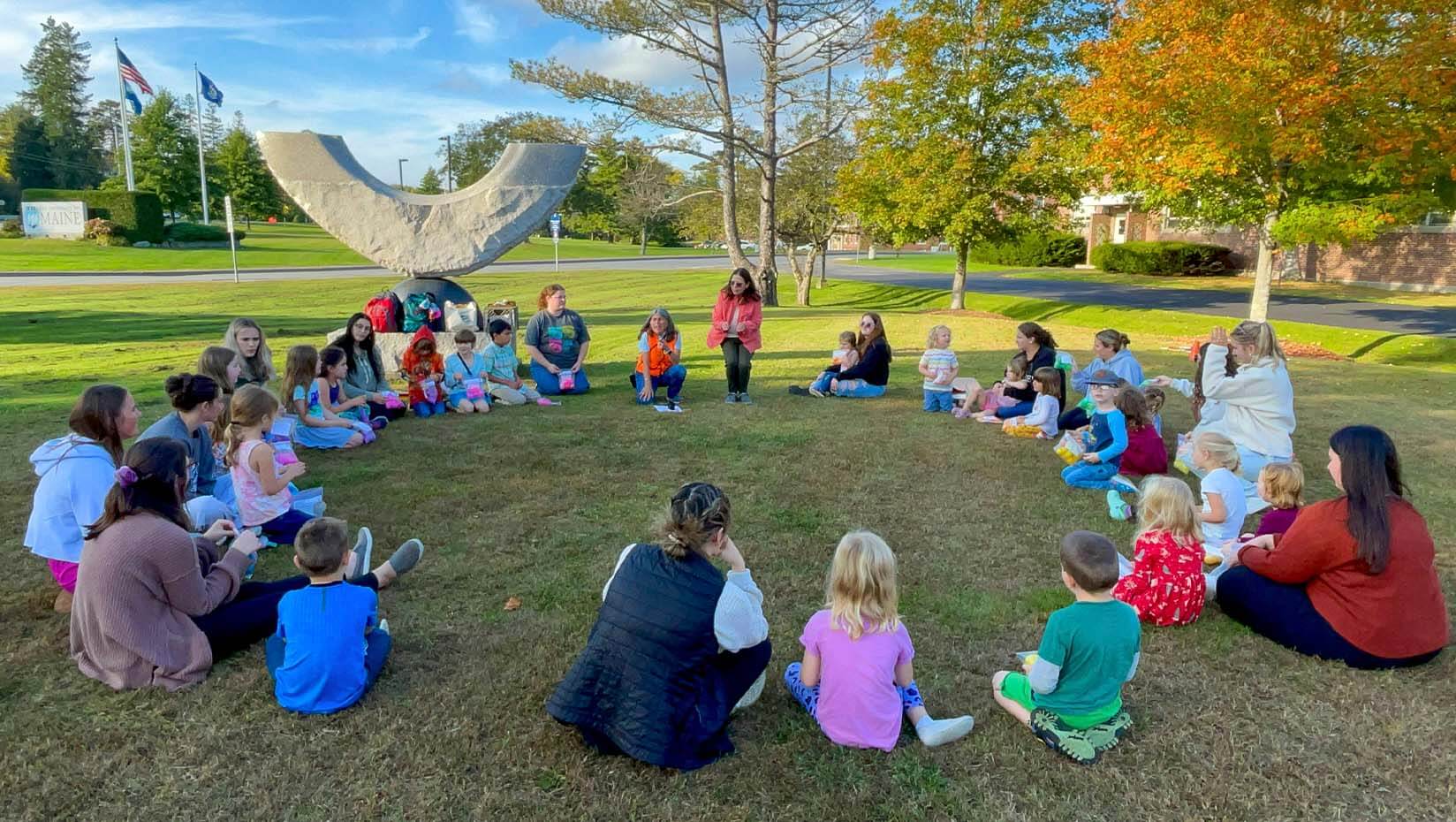
Ask any veteran educator what the most important thing an aspiring teacher can do to prepare themselves for a career in the classroom, and they will likely say there’s no substitute for first-hand experience.
At the University of Maine’s College of Education and Human Development, “Early and Often” is the motto when it comes to getting education majors into K–12 schools and other educational settings. Starting in their freshman year, UMaine offers a variety of opportunities for students to observe practicing teachers and to teach themselves, including multiple courses with a field experience component.
One of those courses is celebrating a milestone this year: CHF 321: Curriculum and Methods of Teaching Young Children Science, which has tasked many UMaine students with running after-school science labs for 15 years as part of their coursework. Since its inception, the program has grown from being held at one school to many in Orono, Old Town and surrounding communities.
Connie Ronco, an adjunct instructor who has taught the course since 2017, says UMaine preservice teachers get hands-on experience working with children in prekindergarten to grade four, using actual science lesson plans that they can take with them in the field.
“We cover all the areas included in the Maine Learning Results for science,” says Ronco, who served on the Maine Department of Education committee that developed those standards. “Life science, physical science, engineering, and Earth and space science.”
The science lab began as a partnership between Mary Ellin Logue, associate professor emerita of early childhood education, and Joanne Alex, former director of the Stillwater Montessori School in Old Town. In 2001, when she was working on her master’s degree at UMaine, Alex started an environmental club for students at the Montessori school. Eight years later, Logue asked Alex to teach the CHF 321 class.
“Mary Ellin helped schedule the class during a time when the environmental club met and facilitated transportation for our students to come to campus and work with the university’s pre-service teachers,” Alex says.
Although Alex retired from teaching and closed the Montessori School in 2019, the collaboration is still going strong and educating many young students in the area.
“I’m very glad we’ve been able to keep it going,” Alex says. “It’s great for UMaine’s student teachers to design lessons for children and to get to work with children themselves.”

One important component of the science lab, says Alex, is getting children outside to explore nature. This was on full display at a recent session in October, where several UMaine pre-service teachers led small groups of children in a lesson titled “Seed Need” on the grassy area between Lengyel Hall and Buchanan Alumni House. With the mid-afternoon sun shining over the Stillwater River, each group examined different kinds of seeds, including acorns, pinecones and fruit seeds on large pieces of cardboard. The UMaine students encouraged the children to pick up each seed and notice how they were the same or different. They also discussed how wild animals eat seeds and plants, as well as how they might help spread them to new places. Following the small group activity, all of the students and pre-service teachers came together for large group games and songs.
Rebekah Mellor, a senior from Stockton Springs, Maine majoring in elementary education with a concentration in child development and family relations, worked with a group of first-grade students along with two other pre-service teachers. She says the most helpful aspect of the class so far has been creating and using lesson plans, as well as reflecting on how the lessons went after each class.
“It gives you an opportunity to see what works and what doesn’t, because it might not necessarily work the way you want it to when you write it down on paper. So, just seeing what those obstacles are and how to overcome them has been really beneficial,” says Mellor.
Mellor, who is planning to become certified in both elementary and early childhood education when she graduates from UMaine, says the course offers a different perspective than some of her other field experiences, such as teaching observations and student teaching.
“I’m writing lesson plans that I will actually use and reflecting on actual practice and observing children in a totally different context than a traditional classroom,” she says.
In addition to the “Seed Need” lesson, other themed lessons from the after-school science lab this semester have included “Nature Detectives: Learning to Look, Learning to See” and “Making and Tinkering with STEM.”
The final lab class of the semester will be “Exploring the Night Sky” on Thursday, Nov. 30.
Contact: Casey Kelly, [email protected]
